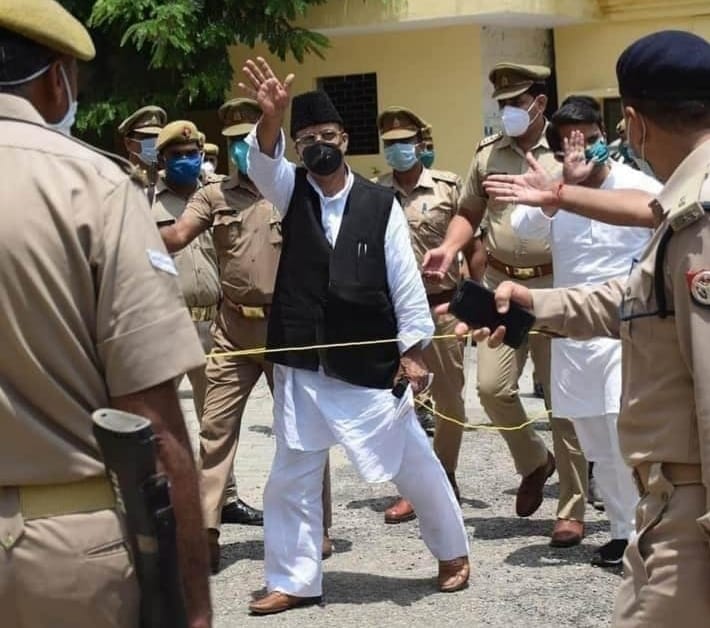By Masud Javed
The United Democratic Front (UDF) in Assam has carved out a niche for itself through its hard work among the masses irrespective of their religion, caste, or cred. It has emerged as the voice of the oppressed.
Usually Muslim outfits, with green flags and crescents on them, appear at the scene only at the time of elections. They contest elections [with the sole purpose] to be defeated or to [divide Muslim votes and] defeat a particular party or, if one were to believe rumours, to accept bribes from a political party and withdraw in favour [of the highest bidder]. They disappear from the scene as soon as the election results are declared and go into oblivion for the next five years only to issue occasional press releases during this time on some emotive issue.
In contrast the UDF, led by Maulana Badruddin Ajmal, was formed at the time when the Congress was obsessed with the idea of pleasing the majority at the cost of minorities and, despite having been supported by the Muslims of Assam for decades, ignored their genuine and legitimate demands.
Having established itself as a force to reckon with, it extended a hand of friendship towards Congress to form an alliance against BJP. But fearing that such an alliance would increase UDF’s popularity and without an alliance it would die a natural death, Congress rejected UDF’s offer. It is, however, altogether a different issue that after its election defeat, specially after the media, English media in particular, referred to UDF as the ‘king maker’, Congress leaders in the state realised their mistake and the party regretted its decision.
But the media, with a particular mindset, with the help of panellists in their discussion programmes, tried to impress upon the public that the UDF, like the Majlis-e-Ittehad-ul-Muslimeen, was a communal organisation. Not only those outside the community but even the Muslims started repeating this narrative.
[The fact is that] UDF contests elections with the help of non-Muslims, prepares a good strategy, makes good seat sharing arrangements with them and, despite the fact that it is unable to form its government, gains so much importance and weight that other parties are left with no option but to try to get its support or even enter into alliance with it.

Election victory is always unpredictable. The reason why it failed to get desired results in the last election was, partly because there was a saffron wave in the country and partly because of the avowed revulsion of Muslim intellectuals for the idea of a Muslim leadership. In response to any such proposal they ask: ‘Do you want to create another Pakistan?’; ‘Can elections be won just on the basis of Muslim votes?’ and opine: ‘A diamond cuts a diamond. ‘So’ they argue, ‘strengthen a strong national party (i.e. the Congress).’
Let there be no doubt that it was under the Congress rule that most savage anti-Muslim riots had occurred in UP and rest of the country. [Therefore, in UP] Congress was taught a lesson. But the performance of the replacements of the Congress—Samajwadi Party (SP) and the outfit espousing Dalti-Muslim Unity, the SSP—needs to be taken stock of.
Look at the condition of Azam Khan, his wife and son, once regarded as the right-hand man of Mulayam Singh and Akhilesh. What has the party done for him? Agreed that no one should interfere in legal proceedings, but they could at least protest against the injustices meted out on him and his family. They can at least fight cases in the court on their behalf. [On the face of it], the advice to Muslims to continue supporting the oldest mainstream party sounds very good. But what this mainstream party, the Congress, is doing to most senior Muslim politicians withing its rank has been reported well in the media.
Translated by Urdu Media Monitor from Qindeelonline.com

